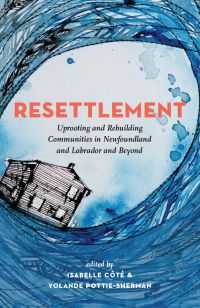Resettlement
Éditeur : ISER Books
ISBN numérique ePub: 9781894725811
Parution : 2020
Catégorisation :
Livres numériques /
Autre /
Autre /
Autre.
Formats disponibles
| Format | Qté. disp. | Prix* | Commander |
|---|---|---|---|
| Numérique ePub Protection filigrane*** |
Illimité | Prix : 24,99 $ |
*Les prix sont en dollars canadien. Taxes et frais de livraison en sus.
***Ce produit est protégé en vertu des droits d'auteurs.
Description
Resettlement is a global phenomenon once again at the forefront of political debate in Newfoundland and Labrador. This collection, edited by political scientist Isabelle Côté and geographer Yolande Pottie-Sherman, presents an assembly of interdisciplinary voices situating Newfoundland and Labrador resettlement (past, present, and future) in conversation with relocation debates in other places such Quebec and Northern Canada, Greenland, and Ireland. Contributors consider common themes of contemporary resettlement programs including resistance, collective-decision-making, power, place, and identity. Newfoundland Studies scholars have underscored the significance of Smallwood-era resettlement programs (1954–1977), but have not yet adequately addressed the second, ongoing phase of resettlement (1977–present), carried out at the request of communities and implemented to mitigate the fiscal mismatch between shrinking populations and infrastructure costs. In these pages, scholars examine a process that begins before and continues long after communities or individuals move, and places the Newfoundland and Labrador experience in conversation with other global contemporary resettlement projects.























